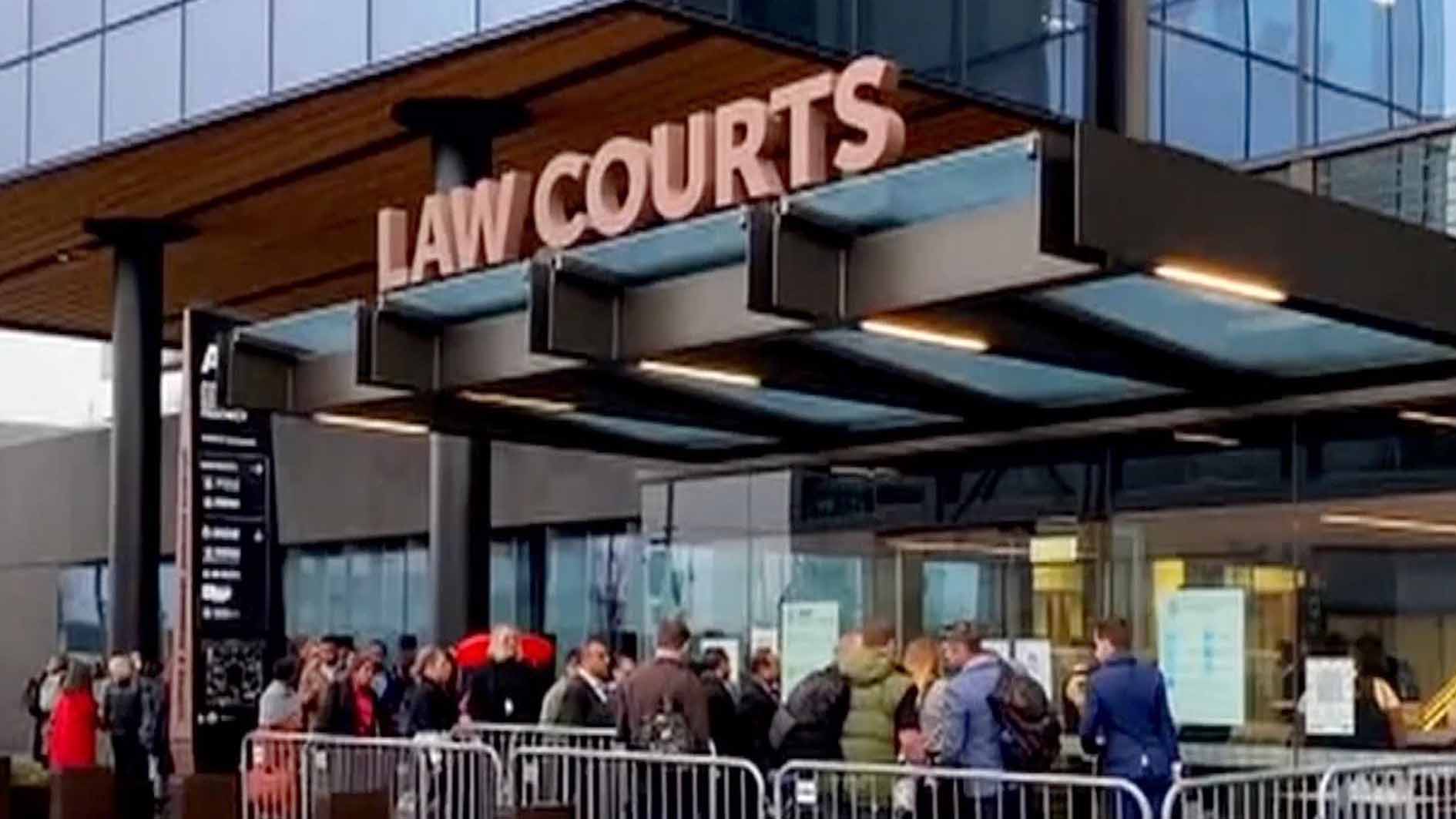00:43

The gunman who killed 51 people in New Zealand's worst mass shooting faces a life prison term, possibly without parole, after multi-day sentencing hearings that started on Monday. A prosecutor said during his sentence hearings that the defendant has planned his shooting rampage to maximize the casualties for years.
Australian Brenton Tarrant, 29, has pleaded guilty to 51 murder charges, 40 charges of attempted murder and one charge of committing a terrorist act in relation to the massacre in the city of Christchurch which he livestreamed on Facebook.
He faces a life prison term, possibly without parole in what would be a first for New Zealand, when a High Court judge sentences him later this week.
Handcuffed and dressed in grey prison clothes, Tarrant sat with hands clasped for most of the morning's proceedings. He showed little emotion, and looked directly at those delivering victim impact statements.
Crown prosecutor Barnaby Hawes said Tarrant told police after his arrest that he wanted to create fear among the Muslim population.
"He intended to instil fear into those he described as invaders, including the Muslim population or more generally non-European immigrants," Hawes said.
The shooter spent years purchasing high-powered firearms, researched mosque layouts by flying a drone over his primary target, and timed his March 15 attacks to maximize casualties, the prosecutor said.
The attacks prompted a global outpouring of grief as well as scrutiny, with regulations imposed on online platforms after the then 28-year-old livestreamed the mosque shootings shortly after uploading a manifesto.
Meanwhile, New Zealand introduced two sets of reforms to tighten its firearm laws in wake of the tragedy.
Gamal Fouda, imam of Al Noor mosque, where most of the killings occurred, told Tarrant that he was "misguided and misled" and that his hatred was unnecessary.
"I can say to the family of the terrorist that they have lost a son and we have lost many from our community too," Fouda said. "I respect them because they are suffering as we are."
Fouda added that Tarrant's "evil actions" have"brought the whole community closer."
Security is tight outside the court, with police dogs pacing the streets and snipers on rooftops, television footage showed.
With social distancing measures in place due to the reemergence of coronavirus in New Zealand, a small public gallery is at the main court, with survivors and families of victims viewing the proceedings in seven overflow court rooms.
Live reporting from the courtroom is banned, and other restrictions have been put in place on what the media can report.
High Court judge Cameron Mander said that he had received more than 200 victim impact statements, along with submissions from various organizations.
"I have read them all," said Mander, who added that he would not sentence Tarrant before Thursday morning after survivors and family members of victims had an opportunity to address the court.
A murder conviction carries a mandatory sentence of life in prison. The judge can impose a life term without parole, a sentence that has never been used in New Zealand.
(With input from Reuters)